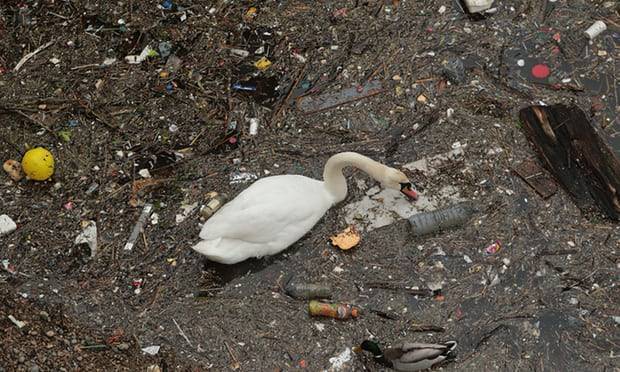Only 40% of surface water bodies surveyed by the European Environmental Agency (EEA) were found to be in a good ecological state, despite EU laws and biodiversity protocols.
England was one of the poorer performers to emerge from the State of Our Waters report, which studied 130,000 waterways.
The EU’s environment commissioner, Karmenu Vella, said there had been a slight improvement in freshwater quality since 2010. “But much more needs to be done before all lakes, rivers, coastal waters and groundwater bodies are in good status,” he added. “Tackling pollution from agriculture, industry and households requires joint efforts from all water users throughout Europe.”
Scotland dramatically outperformed England in the clean water stocktake which covers the 2010-15 period, with water standards similar to much of Scandinavia.
Precise comparisons are difficult as reporting methodologies vary across Europe but water quality in England was in the bottom half of the European table, and had deteriorated since the last stocktake in 2010.
Peter Kristensen, the report’s lead author told the Guardian that higher population densities, more intensive agricultural practices, and better monitoring of waterways had all contributed to the result.
“England is comparable to countries in central Europe with a high proportion of water bodies failing to reach good status,” he said. “The situation is much better in Scotland, where only around 45% of sites failed [to meet minimum standards].”
“It would be advisable for England to continue with legislation similar to the water framework directive after Brexit,” he added.
The directive aims to protect protect human health, water supply, ecosystems and biodiversity and was supposed to oblige EU countries to achieve a good ecological status for their waterways by 2015.
But they have not, and their failure to do so threatens the bloc’s 2020 biodiversity goals, according to Andreas Baumueller, WWF Europe’s head of natural resources.
“This report shows that we are nowhere [near] halting biodiversity loss by 2020,” he said. “It is just another symptom that we will miss the targets set by heads of states. The legislation is there in the form of the EU’s WaterFramework Directive, but the political will is clearly lacking to make it work on the ground.”
The EEA survey revealed a divide between chemical pollution in ground and surface water sites. Three-quarters of groundwater samples were of good quality; 62% of rivers, estuaries and lakes were not.
Mercury contamination was one of the most common problems, with overuse of pesticides, inadequate waste treatment plants and tainted rainfall all contributing to the results.
Hans Bruyninckx, the EEA’s executive director said: “We must increase efforts to ensure our waters are as clean and resilient as they should be – our own wellbeing and the health of our vital water and marine ecosystems depend on it.”
More about: #Europe
















































